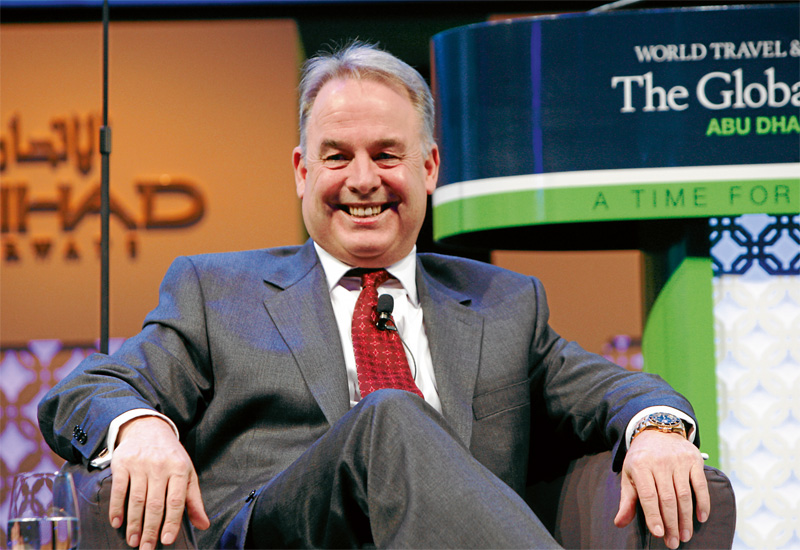Room for a Night
The focus then turned to hotels, with a session centred on the way brands and technology are helping hotel chains grow their markets.
Keynote speaker Richard Solomons, CEO of InterContinental Hotels Group (IHG), said: “A hotel brand is about an experience and that experience is delivered by people. We spend an awful lot of time looking for talent and training talent.” He said IHG was planning to hire 90,000 new staff over the next three years to support its global expansion, with China being its largest growth market.
“Our job as a brand is to make sure we have the best location in the market,” Solomons added. “We have maps of Abu Dhabi and Dubai showing where we want to be.”

| Advertisement |
Arthur de Haast, chairman, Hotels and Hospitality Group of Jones Lang LaSalle Hotels, suggested that hotel chains should focus their expansion strategies not only on locations where there was evident hotel demand, but also where hospitality represented a better investment than other assets.
“[The brands] should be thinking of how they can deliver returns in certain locations. Virtually all the brands could do more in focusing on [the needs of investors].”
Darren Richard Huston, CEO of Booking.com, said technology was a key to brand penetration. He explained that through online booking, guests are able to base their lodging choices on a plethora of details.
“In the age of the internet, information is being democratised to such an extent…We have a million guests staying every night and they are mining data like it’s a candy store. People can now come to Abu Dhabi and Dubai and use all the filters. They can even live different lives, as a businessman and with the family (with different filtering profiles).
Brands are completely relevant now, but they can’t afford to be average — they’ve got to be the best.”
Huston added that iPhone and iPad usage in Dubai and the UAE was unusually high.
The China Debate
Another session ‘Common Problems, Common Solutions’ was discussed by a panel including senior representatives of the cruise-line industry, railways, travel companies and others — with China emerging as a key focus.
China was the source of an astonishing 83 million outbound travellers in 2012, who spent $100 million on their travels and will increase in numbers to 200 million by 2020, according to Ken Chu, chairman and CEO, Mission Hills Group.
He went on to say that China would open 100 new airports by 2015 and add 120,000 km of new railway lines serving 600 cities and 50 million people in the next eight years, in a bid to reduce carbon dioxide emissions. He told the audience there would also be six new cruise ship ports in Hainan Island alone — the venue for next year’s WTTC Global Summit.
Desiree Bollier, CEO of Value Retail, confirmed that the Chinese were the top spenders on luxury duty-free goods, followed by the Russians, the GCC and Brazil. These are the people you want booking your hotels — but it’s not that simple.
The session revealed that the Chinese are facing major visa restrictions, with just 6% of last year’s outbound total able to visit Europe and just 1.25% the US, according to Chu. Bollier echoed the sentiments of many in the forum when she complained that government visa restrictions for many nationalities was impacting tourist flows around the world.
“The cost of the visa… the length it takes, you are almost saying ‘you are not welcome to come.’ On the one hand, you are saying that the tourism industry is an economic saviour of the planet, and on the other, there is no joined-up thinking by the government bodies to say, well, let’s do something about it collectively,” said Bollier. “How could we speed up the process without jeopardising security?”
Article continues on next page ...









 Search our database of more than 2,700 industry companies
Search our database of more than 2,700 industry companies









